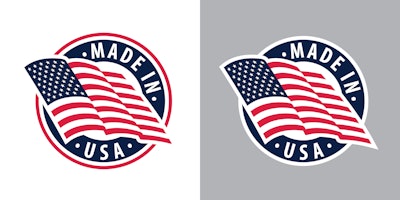
U.S. consumers are now less likely to factor country of origin—even the United States—into their product buying decisions than they were just three years ago, according to new data from The Conference Board.
“Country-of-origin cues still matter, but their influence is slipping,” says Denise Dahlhoff, director of marketing and communications research at The Conference Board and author of the report. “As price concerns intensify, many U.S. consumers appear to associate ‘made in’ labels with elevated prices due to generally higher domestic production costs as well as tariffs on foreign-made goods. Increasingly, consumers prioritize value and affordability over emotional affinity for certain countries, including their own.”
Key takeaways:
· The new report concludes that price sensitivity, inflation, and trade policy may have reshaped the marketing power even of once-prestigious "Made in" labels, which can serve as a quality indicator, brand differentiator, and even a source of national pride.
- Since 2022, the share of U.S. consumers who say they are more likely to buy a product based on where it’s made—including the United States—has declined significantly.
- “Made in USA” appeal dropped 18%. About half of U.S. consumers in 2025 say knowing a product was made in the United States makes them more likely to purchase it again. That’s an 11-point decrease in positive perception compared to three years ago, an 18% decline overall.
- Since 2022, support for U.S.-made products fell significantly among consumers aged 55-plus, a group historically most loyal to domestic brands. Among White consumers, support also dropped steeply, suggesting growing price sensitivity in these key demographics.
- The share of consumers under 35 with negative perceptions of “Made in USA” fell, although they have traditionally been more skeptical of U.S.-branded products, hinting at growing interest in domestic production tied to sustainability and job creation.
- Preference for countries associated with upscale goods—like France, Germany, and Japan—increases with income up to $125,000 annually. Among the highest earners ($200,000-plus), interest in country of origin as a cue is lower, likely due to broader lifestyle considerations, higher financial literacy, or multi-person households balancing budgets.
- Of the United States’ Top 3 import partners, Canada is viewed most favorably, followed by Mexico. China—despite its dominance in consumer goods—remains the least preferred of the US’s top three import partners.
- Countries like India, Vietnam, and Bangladesh, which have received diverted production amid US trade tensions with China, are generally viewed less favorably by U.S. consumers as countries of origin.


















